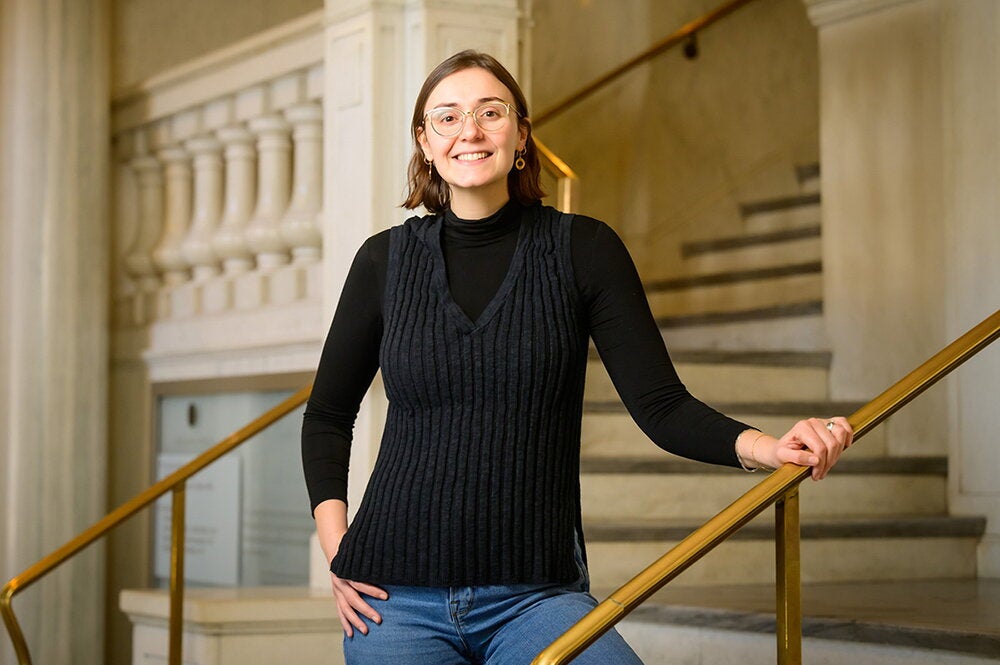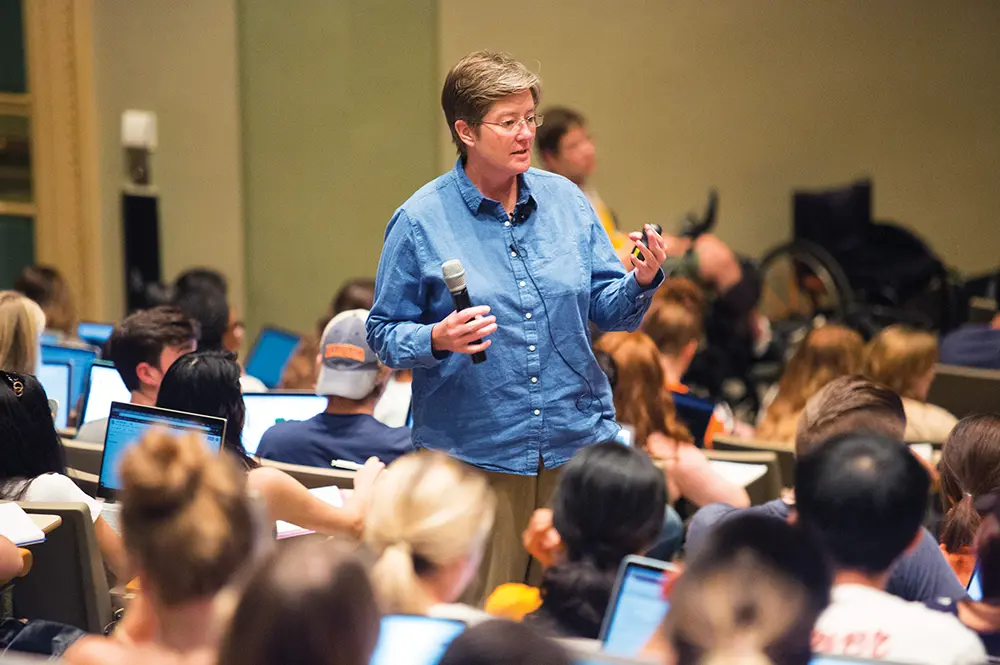
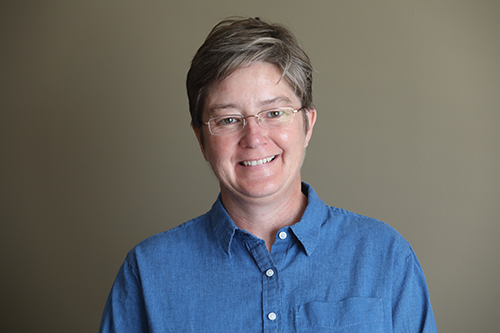
Sometimes an unusual comparison can bring big problems to light. Back in the late 1990s, when Rebecca Sandefur was working on her doctoral degree at the University of Chicago, she was troubled by a discrepancy she saw between the U.S. legal system and public schools.
Both were large and publicly funded institutions, but while schools were easily accessible, the court system was so complex that people needed to hire lawyers to handle it. That observation led Sandefur, a professor of sociology and law at Illinois since 2011, to a widely recognized career of studying how to improve access to civil justice.
What are some of her solutions? Finding alternatives (including technological alternatives) to lawyers, streamlining court processes, and making legal services more affordable for low-income people.
“We know there are much better ways to do this work than the way our justice system does it now,” Sandefur said.
Her ideas are being noticed. This past October, Sandefur was awarded a MacArthur Fellowship, more commonly called a “genius grant,” from the John D. and Catherine T. MacArthur Foundation. She was one of 25 scholars to receive the prestigious award and $625,000 prize in 2018. The grant is reserved for scholars who have demonstrated exceptional creativity and are “on the precipice of great discovery or a game-changing idea,” according to the MacArthur Foundation.
Sandefur is regularly sought out by organizations trying to improve access to civil justice, and she is a key contributor to a new global program at the Organization for Economic Co-Operation and Development to improve access to justice.
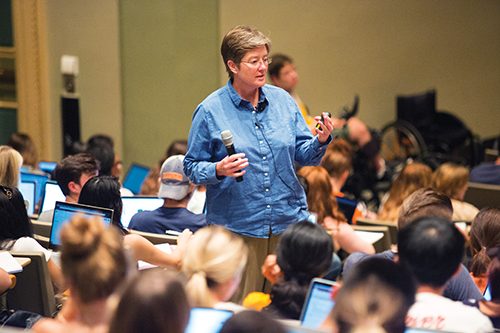
“Although the outcomes of civil cases are potentially life-changing—including eviction, loss of custody of a child, wage garnishment, or loss of government or insurance benefits—one or more parties lack legal representation in more than three-quarters of cases filed in state civil courts today,” the foundation said, in announcing Sandefur’s grant. “Sandefur’s investigations of the civil justice needs of low-income populations are shedding light on the availability of civil legal aid services, the help-seeking behavior of individuals facing civil legal issues, and the impact of lawyers in civil cases.”
Sandefur is credited for reviving the dormant field of civil justice research as she maps inequalities in access to legal assistance and studies how to improve the resolution of legal disputes. She created the first systematic national mapping of civil legal providers, and determined that—in addition to cost—aversion to lawyers, fear and pessimism about the courts, and failure to recognize a problem as “legal” inhibit low-income individuals from seeking a lawyer’s assistance.
For example, many victims of wage theft, a common legal problem where employers don’t properly compensate employees for overtime, weekend, or holiday work, do not understand that their employer is violating a law.
Sandefur’s research has also revealed that the quality and quantity of pro bono services are highly dependent on market forces, and that they are less available during economic downturns. Furthermore, Sandefur has found that the advantage of a lawyer often resides in the lawyer’s ability to navigate rules and procedures rather than providing a deep knowledge of the law.
In fact, Sandefur believes that the gap in access to civil justice experienced by low-income individuals might be bridged without lawyers. Sandefur has evaluated pilot projects where court navigators without formal legal training guided tenants through housing battles.
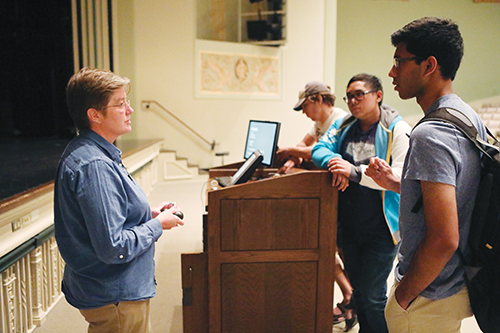
In New York City, where 90 percent of tenants facing eviction do not have a lawyer, Sandefur found that litigants assisted by navigators were more likely to present defenses, more successful at winning legal disputes over housing repairs, and less likely to be evicted.
Sandefur plans to use the award money to research ways to improve legal access by helping people navigate procedures typically handled by lawyers. While some solutions will use new roles for people, some will use technology. For example, smart phone apps, such as JustFix, are already capable of handling tasks traditionally handled by a lawyer, such as notifying landlords of habitability problems.
Sandefur also hopes to help automate some processes that would help clear a congested justice system. With a third of all Americans with debts in collections, Sandefur believes that a digitized process can help filter out baseless lawsuits that clog the courts.
Her research comes with high stakes. People without sufficient legal knowledge or assistance are more likely to suffer bankruptcy, evictions, and loss of child custody disputes.
“It’s not just me writing a paper that gets published in a journal. It’s actual lives,” Sandefur said. “The reason I do this work is to try to make lives a tiny bit better. It’s fuel for the fire to keep it going… There’s no silver bullet for this bundle of problems.”
Sandefur said the MacArthur grant has not only provided a financial boost to her research, but it helps her publicize the problem of civil justice in the U.S.
“It’s a really tremendous opportunity to bring attention to an issue that’s been under the radar for a long time,” she said. “Universities are the only place where this kind of research will happen. It’s not research that creates something you can sell, and it’s wonderful that universities are still here producing this kind of work.”
Genius at work
In addition to her research, Rebecca Sandefur teaches several courses, including social stratification and inequality, law and society, introduction to sociology, classical sociological theory, and access to justice.
Editor's note: This story originally appeared in the Spring 2019 issue of LAS News magazine.
